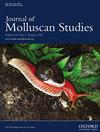墨西哥太平洋hubbsorum章鱼(头足纲:章鱼科)食性和同位素生态位的地理差异
IF 1.2
4区 生物学
Q2 MARINE & FRESHWATER BIOLOGY
引用次数: 0
摘要
章鱼是墨西哥太平洋重要的渔业资源,它既是捕食者又是被捕食者,是连接不同营养水平的纽带。本研究通过分析消化内容物及碳、氮稳定同位素,确定了黄颡鱼的饮食、同位素生态位和营养地位的空间变化。章鱼的样本来自四个地点,三个在加利福尼亚湾生态区,一个在墨西哥太平洋过渡生态区。黄颡鱼的食性由11个主要类群组成。甲壳类动物是最重要的猎物,尽管一些个体食用的多毛类、卵和头足类动物的比例很高。稳定同位素值变化较大(−15.86 ~−13.76‰δ13C;14.80 ~ 17.23‰δ15N),反映了4个地点食物网底部的信号。营养位置和同位素生态位的差异证实了该物种作为多面手捕食者的作用,因为它可以根据当地的可用性在替代食物来源之间转换。总的来说,我们的研究结果表明,O. hubbsorum在所有地点都具有类似的生态作用,作为甲壳类动物的捕食者,在较小程度上是软体动物和鱼类的捕食者。本文章由计算机程序翻译,如有差异,请以英文原文为准。
Geographic differences in the diet and isotopic niche of Octopus hubbsorum (Cephalopoda: Octopodidae) in the Mexican Pacific
Octopus hubbsorum is an important fisheries resource in the Mexican Pacific and a link among different trophic levels due to its ecological role as both predator and prey. In this study, the spatial variations in the diet, isotopic niche and trophic position of O. hubbsorum were determined by analysing digestive contents along with carbon and nitrogen stable isotopes. Octopuses were sampled from four locations, three in the Gulf of California ecoregion and one in the Mexican Pacific transition ecoregion. The diet of O. hubbsorum consisted of 11 major taxonomic groups. Crustaceans were the most important prey, although some individuals consumed high proportions of polychaetes, eggs and cephalopods. The stable isotope values showed high variation (−15.86 to −13.76‰ δ13C; 14.80–17.23‰ δ15N), reflecting signals of the base of the food web at the four locations. Differences in trophic positions and isotopic niches confirm the role of this species as a generalist predator, as it can shift among alternate food sources according to local availability. Overall, our results suggest that O. hubbsorum has a similar ecological role at all locations as a predator of crustaceans and, to a lesser extent, of molluscs and fish.
求助全文
通过发布文献求助,成功后即可免费获取论文全文。
去求助
来源期刊

Journal of Molluscan Studies
生物-动物学
CiteScore
3.00
自引率
8.30%
发文量
36
审稿时长
3 months
期刊介绍:
The Journal of Molluscan Studies accepts papers on all aspects of the study of molluscs. These include systematics, molecular genetics, palaeontology, ecology, evolution, and physiology. Where the topic is in a specialized field (e.g. parasitology, neurobiology, biochemistry, molecular biology), submissions will still be accepted as long as the mollusc is the principal focus of the study, and not incidental or simply a convenient experimental animal. Papers with a focus on fisheries biology, aquaculture, and control of molluscan pests will be accepted only if they include significant advances in molluscan biology. While systematic papers are encouraged, descriptions of single new taxa will only be considered if they include some ‘added value’, for example in the form of new information on anatomy or distribution, or if they are presented in the context of a systematic revision or phylogenetic analysis of the group.
 求助内容:
求助内容: 应助结果提醒方式:
应助结果提醒方式:


